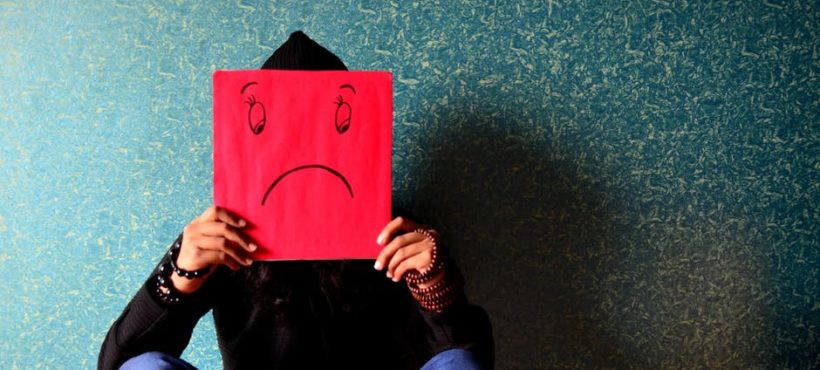
The Cause and Effect of Depression: Facts and Treatment Options
It is estimated that 16.2 million adults in the U.S. experience at least one major depressive episode a year. Untreated clinical depression can ruin relationships, cause problems at work, and make it more difficult to fight off illness. While depression is a psychological issue, it can quickly become a physical and emotional one. What is the cause and effect of depression?
How can it be treated? And which treatment options are best for those that suffer?
Let’s take a look.
1. Causes
The causes of depression are varied and complex. It may be caused by different variables with different people.
You may become depressed because of a life-changing event, such as the death of someone close to you or a serious illness. Or you may have a family history of depression.
Those who are physically, emotionally, or sexually abused as children are more prone to become depressed as adults. If you have a predisposition toward depression, a personal conflict or relationship problem could also bring on symptoms.
Isolation or being cast out of a social group could cause depression. Major events, such as a divorce or losing a job, will cause worse-than-normal symptoms in those who experience depression.
A number of genetic factors contribute to depression. Many different genes bring on small effects, rather than one gene, in particular, causing the depression.
Alcohol or drug problems have also been known to cause depression. Some prescription drugs, such as those used to treat acne, have also been known to contribute.
2. Symptoms
While it is normal to feel lonely or sad sometimes, certain symptoms are a red flag for depression.
These may include trouble concentrating or difficulty making decisions. You may also feel fatigued, pessimism, or irritability.
Those who are depressed may find themselves losing interest in activities they once enjoyed for an extended period of time. They may have difficulty sleeping, or sleep too much. Sudden weight loss or gain may also indicate depression.
Depressed people may have unexplained digestive problems and won’t go away. They may have suicidal thoughts or tendencies.
Your doctor will be able to diagnose your depression based upon a series of questions. They will ask when your symptoms started, and how long they lasted. A good psychologist or psychiatrist will also diagnose your specific type of depression.
3. Types Of Depression
One type of depression is Major Depressive Disorder. This is characterized by feelings of sadness, hopelessness, and worthlessness that won’t go away on their own.
Those with Major Depressive Disorder will feel depressed for most of the day. They may lose interest in regular activities, gain or lose weight, or have suicidal thoughts.
If you experience five or more MDD symptoms for two weeks or longer, your doctor can diagnose you with Major Depressive Disorder.
Persistent Depressive Disorder is similar to Major Depressive Disorder, but the symptoms are not as severe. You may experience hopeless feelings, a lack of self-esteem, or low productivity. Symptoms of Persistent Depressive Disorder last for two years or longer.
Those with Bipolar Disorder have periods of high energy and times when they experience Major Depressive symptoms. Mood episodes may occur for weeks or months at a time, and they may be accompanied by suicidal thoughts.
Seasonal Affective Disorder is a type of depression related to changes in seasons. Those with SAD tend to experience symptoms of depression when there is less light during the day.
SAD patients may find their depression dissipates during the spring and summer months. They can use ightboxes for symptoms during the fall and winter.
Women may experience postpartum depression, which happens in the weeks and months following childbirth.
Premenstrual Dysphoric Disorder may occur in women at the start of their periods. Symptoms include mood swings, irritability, and anxiety.
4. Treatments For Depression
Psychotherapy is a popular treatment for depression. It provides a hands-on, practical approach to problem-solving that will get to the causes of depression.
In psychotherapy, professionals help those suffering from depression to become aware of the negative thinking patterns that contribute to undesirable behaviors and poor outcomes. This type of therapy can be done face-to-face, over a computer, or on the phone.
Medications, such as antidepressants, are often used when other types of treatments are not successful. Different types of antidepressants work on different neurotransmitters. They can be very useful in the treatment of moderate to severe depression or anxiety.
Exercise is a great natural way to reduce depression symptoms. It releases endorphins and stimulates the neurotransmitter norepinephrine, which causes a happy mood.
Other natural treatments include a healthy diet, participation in productive activities, and avoiding drugs, alcohol, and negative people.
5. Untreated Depression
Depression affects the way you eat, sleep, and work. It changes the way you feel about yourself and those around you.
Untreated depression can take a serious toll on your physical health. Those with untreated depression are more prone to a stroke or coronary disease. They may also have difficulty making good healthcare choices.
The lack of sleep some experience due to depression can lead to loss of energy, weight gain, and difficulty making decisions.
Men with untreated depression may exhibit anger, frustration, or irritability. Depression also carries a risk of suicide.
It is critical for those with depression symptoms to get help quickly so they can live more confidently and productively.
What Is The Cause And Effect Of Depression?
The cause and effect of depression in one individual may be different than that of another. Professional support and self-care are indispensable for those prone to depressive symptoms.
For more information on depression treatments, read our blog today.


